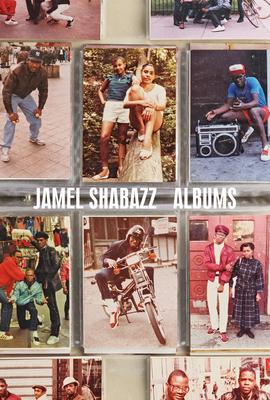Photo albums from the archives of the iconic chronicler of New York's 1980s rap, hip-hop and Black culture
The influential Brooklyn-based photographer Jamel Shabazz has been making portraits of New Yorkers for more than 40 years, creating an archive of cultural shifts and struggles across the city. His portraits of different communities underscore the street as a space for self-presentation, whether through fashion or pose. In every instance Shabazz aims, in his words, to represent individuals and communities with "honor and dignity." This book--awarded the Gordon Parks Foundation/Steidl Book Prize--presents, for the first time, Shabazz's work from the 1970s to '90s as it exists in his archive: small prints thematically grouped and sequenced in traditional family photo albums that function as portable portfolios.
Shabazz began making portraits in the mid-1970s in Brooklyn, Queens, the West Village and Harlem. His camera was also at his side while working as an officer at Rikers Island in the 1980s, where he took portraits of inmates. This book features selections from over a dozen albums, many previously unseen, and includes his earliest photographs as well as images taken inside Rikers Island, all accompanied by essays that situate Shabazz's work within the broader history of photography.
Born and raised in Brooklyn, Jamel Shabazz (born 1960) picked up his first camera at the age of 15 and began documenting his communities, inspired by photographers such as Leonard Freed, James Van Der Zee and Gordon Parks. His work has been featured in numerous solo and group exhibitions, including those at the Brooklyn Museum, the Studio Museum in Harlem, the J. Paul Getty Museum and the Victoria and Albert Museum. Shabazz is the author of Back in the Days (2001) and Sights in the City (2017).
